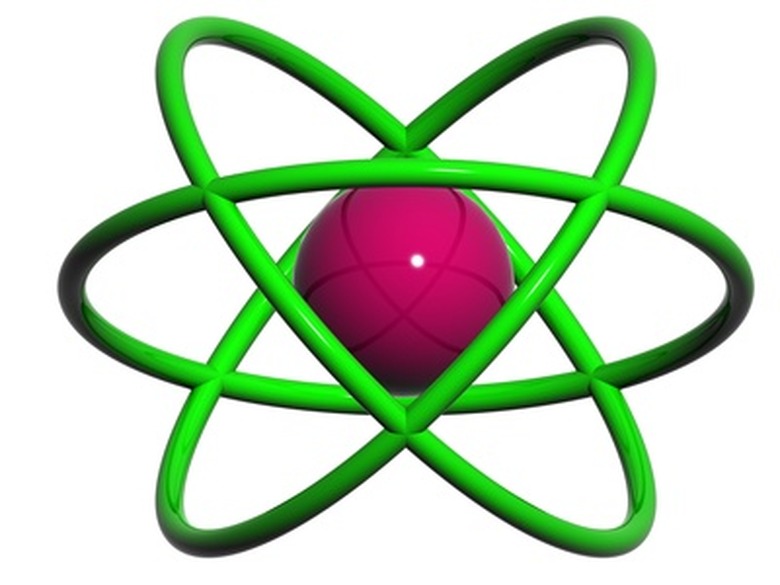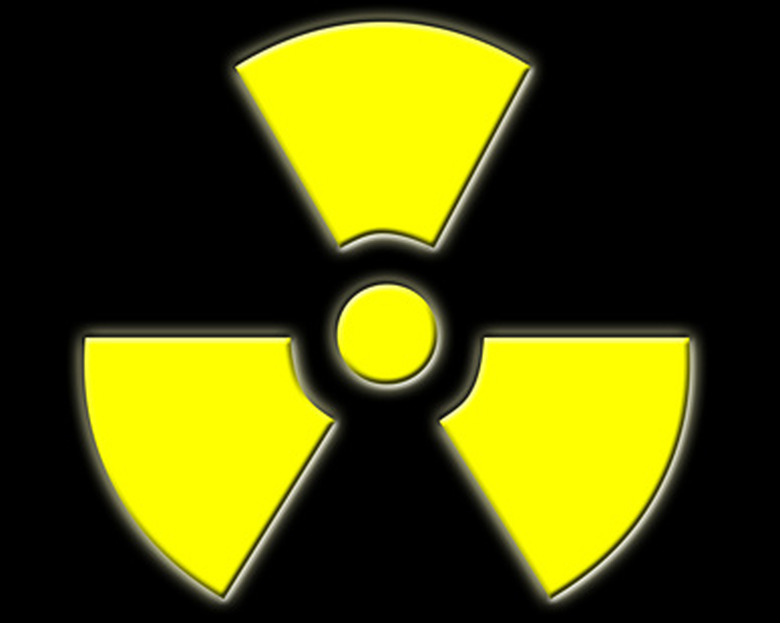How An Atom Loses Protons
Atoms are the fundamental building blocks of all matter. Atoms consist of a dense, positively charged nucleus that contains protons and neutrons. Negatively charged electrons orbit the nucleus. All atoms of a particular element possess the same number of protons, known as the atomic number. There are two general processes by which an atom can lose protons. Since an element is defined by the number of protons in its atoms, when an atom loses protons, it becomes a different element.
Radioactive Decay
Radioactive Decay
One way an atom loses protons is through radioactive decay, which occurs when an atom has an unstable nucleus. The stability of a nucleus depends on the ratio of protons to neutrons. For smaller elements such as carbon and oxygen, the number of protons is roughly equal to the number of neutrons, and the nuclei are stable. For heavier elements such as uranium and plutonium, there are many more neutrons than protons, and the nuclei of those elements are extremely unstable. In fact, all elements that have more than 83 protons are unstable. The three types of radioactive decay are known as alpha, beta and gamma.
Alpha Decay
Alpha Decay
Alpha decay is the only way in which an atom will spontaneously lose protons. An alpha particle consists of two protons and two neutrons. It is essentially the nucleus of a helium atom. After an atom undergoes an alpha emission, it has two fewer protons and becomes an atom of a different element. One such process is when a Uranium-238 atom ejects an alpha particle and the resulting atom is then Thorium-234. Alpha decay will continue to occur until an atom with a stable nucleus results. Alpha particles are relatively large and are quickly absorbed. Therefore they do not travel far through the air and are not as dangerous as the other types of radioactive decay.
Nuclear Fission
Nuclear Fission
The other process by which an atom can lose protons is known as nuclear fission. In nuclear fission, a device is used to accelerate neutrons toward the nucleus of an atom. The collision of the neutrons with the atom causes the atom's nucleus to break apart into fragments. Each fragment is roughly half the mass of the original atom.
When added together, though, the sum of the fragment masses is not equal to the mass of the original atom. This is because several neutrons are usually emitted as the atom fragments and some of the mass is converted to energy. In fact, a small amount of matter generates a tremendous amount of energy.
Applications of Fission
Applications of Fission
A common application for nuclear fission is in the generation of nuclear power. In a nuclear power plant, energy from fission is used to heat water, which creates steam to turn a turbine and generate electricity. Approximately 20 percent of electricity in the United States comes from nuclear power plants.
Another application of nuclear fission is in making nuclear weapons. In a nuclear weapon, a triggering device is used to initiate fission. One fragmentation leads to another, resulting in a chain reaction that releases an enormous amount of destructive energy.
Considerations
Considerations
The only two ways by which atoms lose protons is through radioactive decay and nuclear fission. Both processes will only occur in atoms that have unstable nuclei. It is well known that radioactively occurs naturally and spontaneously. According to J. Marvin Herndon, there is also evidence to suggest that nuclear fission occurs naturally in the Earth's mantle and core, not just in man-made devices like nuclear bombs or power plant reactors.
Cite This Article
MLA
Russell, David. "How An Atom Loses Protons" sciencing.com, https://www.sciencing.com/atom-loses-protons-6309064/. 24 April 2017.
APA
Russell, David. (2017, April 24). How An Atom Loses Protons. sciencing.com. Retrieved from https://www.sciencing.com/atom-loses-protons-6309064/
Chicago
Russell, David. How An Atom Loses Protons last modified March 24, 2022. https://www.sciencing.com/atom-loses-protons-6309064/

